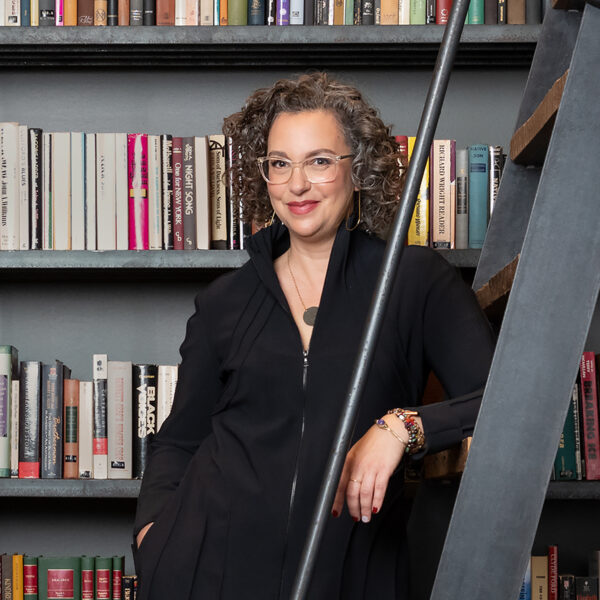I’d originally planned to write about ChatGPT for this month’s newsletter, but instead, I want to take a moment to acknowledge the mass shooting in California over the recent Lunar New Year weekend. Several staff members experienced concern and worry for loved ones as the events unfolded this past weekend. Although immediate family and friends were not injured the experience will leave deep marks.
Finding ways to work against violence, hate, inequity, and racism is a big part of why so many of us are drawn to the public humanities and, especially, to be part of the Illinois Humanities community.

I’m a big fan of philosopher Hannah Arendt’s teachings that we become our most human selves through engagement with one another. When we are surrounded by different kinds of people, with different lived experiences and beliefs, we begin to see intersections that otherwise might remain invisible. The humanities – by design – ensure we encounter divergent perspectives, feel emotions, make memories, develop empathy.
At a time when division and derision of others is accepted as the prevailing norm, working to understand one another’s beliefs – especially when we disagree – is a countercultural act.
At Illinois Humanities we get people to engage with one another around things like stories, books, performances, images and films. Last year we enabled more than 10,000 people to come together to share, ask questions, discern beliefs, and imagine possibilities.
As our community grows our world gets smaller. And for that, I’m grateful.
Our staff and board community have grown since 2022. I’m pleased to introduce you to our newest team members: Fairouz AbuGhazaleh, director of statewide programs; Madeline Cruz, administrative coordinator; Mary Daniels, senior program director; Vicki Garza, director of finance; Joanne Hsu, manager of grants programs; and Martin Matsuyuki Krause, special projects manager.
We also are thrilled to welcome two new board members: Antoinette Burton, Maybelle Leland Swanlund Endowed Chair of the history department at the University of Illinois at Champaign Urbana and director of the Humanities Research Institute; and Julio Paz, Chief External Affairs Officer at Chicago Commons.
These folks bring an incredible passion for the public humanities and for our community throughout the state and I look forward to you getting to know them. As the spring unfolds keep your eyes out for our report about the state of the public humanities in Illinois, this year’s statewide travelling exhibit tour schedule (which will focus on innovation in rural communities) and a very exciting announcement about our 2023 Public Humanities Awards.
Hope to see you soon,
Gabrielle Lyon
Executive Director
About Illinois Humanities
Illinois Humanities, the Illinois affiliate of the National Endowment for the Humanities, is a statewide nonprofit organization that activates the humanities through free public programs, grants, and educational opportunities that foster reflection, spark conversation, build community and strengthen civic engagement. We provide free, high-quality humanities experiences throughout Illinois, particularly for communities of color, individuals living on low incomes, counties and towns in rural areas, small arts and cultural organizations, and communities highly impacted by mass incarceration. Founded in 1974, Illinois Humanities is supported by state, federal, and private funds.
Learn more at ilhumanities.org and on Facebook, Twitter, Instagram, and LinkedIn @ILHumanities.